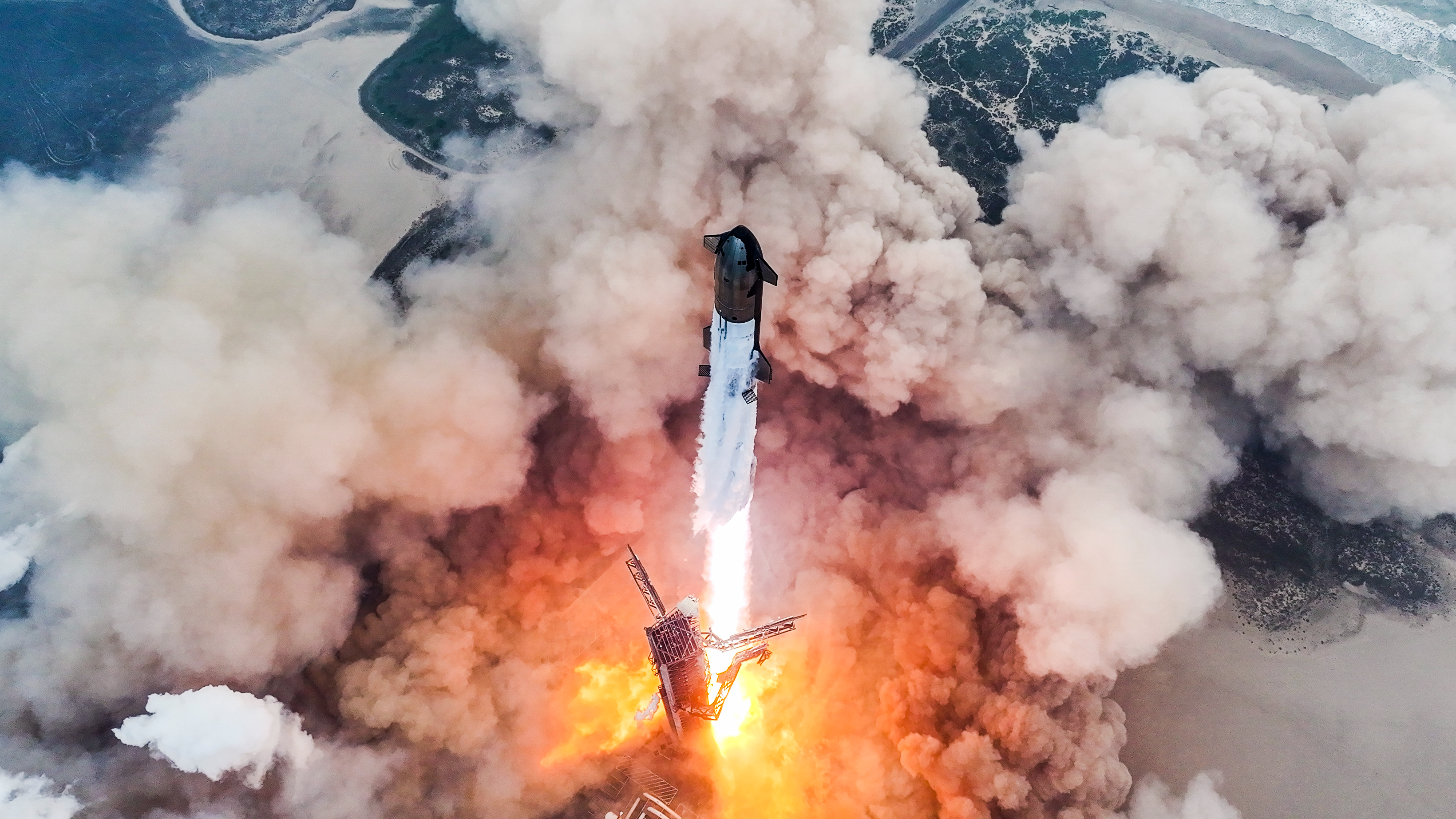
We won't have to wait much longer to see the most powerful rocket ever built take to the skies again, if all goes according to plan.
That rocket, SpaceX's 400-foot-tall (122 meters) Starship, has flown four test flights to date. And number five should be just around the corner, according to SpaceX founder and CEO Elon Musk.
"Flight 5 in 4 weeks," Musk said Friday (July 5) via X, the social media platform he owns.
Starship consists of two elements: a first-stage booster known as Super Heavy and a 165-foot-tall upper-stage spacecraft called Starship, or simply Ship. Both are designed to be reusable.
Starship's four test flights occurred in April and November of 2023 and March 14 and June 6 of this year. All have launched from Starbase, SpaceX's site in South Texas, near the city of Brownsville.
The vehicle has performed better on each successive flight. The most recent launch, for example, went entirely according to plan; Super Heavy and Ship separated on time and came back to Earth as planned, splashing down in the Gulf of Mexico and the Indian Ocean, respectively.
That success helps explain the relatively rapid turnaround for Flight 5. Because Starship performed as expected on June 6, SpaceX has fewer issues to analyze ahead of the next launch. And the U.S. Federal Aviation Administration didn't require a mishap investigation, so technical readiness, rather than regulatory approval, is the main timeline driver for Flight 5.
Flight 5 will feature an exciting new twist, if all goes according to plan: SpaceX has said it aims to bring the giant booster back for a pinpoint landing on Starbase's launch mount, an effort that will be aided by the "chopstick" arms of the facility's launch tower.
This bold strategy will increase Starship's flight cadence, allowing the booster to be inspected, refurbished and relaunched more rapidly, Musk has said.







